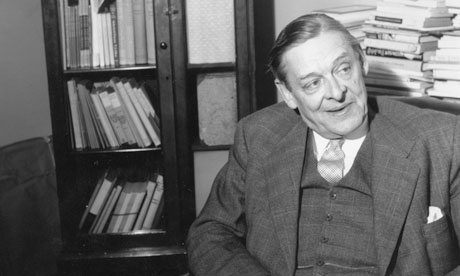
In March of this year, the Arts Council withdrew funding from the Poetry Book Society. A campaign was mounted and a petition was sent round. I didn't sign it, because it seemed a minor issue compared with the dismantling of the health service. I thought perhaps poetry should be suffering its setbacks quietly. I also thought that poetry needed more funding through schools and libraries and less funding through prizes. I don't know whether this decision was the right one, but since then I've been asking myself what role poetry plays in society, whether it has any right to absorb the taxes of people who might not read it – whether, in fact, poetry is a luxury or a necessity.
I think it's often assumed that the role of poetry is to comfort, but for me, poetry is the great unsettler. It questions the established order of the mind. It is radical, by which I don't mean that it is either leftwing or rightwing, but that it works at the roots of thinking. It goes lower than rhetoric, lower than conversation, lower than logic, right down to the very faint honest voice at the bottom of the skull. You can hear that voice in a letter written by the 16th‑century poet Thomas Wyatt to his son: "No doubt in any thing you do, if you ask yourself or examine the thing for yourself afore you do it, you shall find, if it be evil, a repining against it. My son, for our Lord's love, keep well that repining …"
That is the best instruction you could ever give a poet: whether you're examining a bad line in a poem or a bad motive for action, keep well your repining – meaning don't ignore the honest muttering in your head.
There are times when the voice of repining is completely drowned out by various louder voices: the voice of government, the voice of taste, the voice of celebrity, the voice of the real world, the voice of fear and force, the voice of gossip. It seems to me that we're experiencing such times at the moment. It is increasingly difficult to articulate any kind of unease about a system that puts profit before ethics and makes protest a criminal act. I would say at this point, yes, it's important for poets to speak up and side with the unheard; and yes, in the interests of democracy, their presence should be publicly funded.
And if they're not? How should we respond to an offer of support from the private sector? This question has recently come up with reference to the Poetry Book Society (PBS), which – after losing Arts Council backing – approached the City for sponsorship. Aurum Funds, an investment company which "exclusively manages funds of hedge funds", has pledged support for three years, thereby saving the TS Eliot prize and all its associated educational benefits. What does it mean for poetry to ally itself with that kind of company?
Hedge funds are not obliged to be transparent, so there is little one can find out about their practices. Aurum has an office in Bermuda, which happens to be a tax haven, though that doesn't necessarily mean they pay less tax than they should. It doesn't, according to its website, have an ethical policy. Desmond Clarke, vice-chairman of the PBS, assures us it is a respectable company that supports Oxford University; but Oxford University invests a significant amount of money in Lockheed Martin, who have been linked to the manufacture of cluster bombs, which some people might think is not respectable. Aurum also supports the West Yorkshire Pension Fund, whose chairman of trustees says that trustees would be failing in their duties if they allowed ethical issues to cloud their investment decisions.
Clarke's argument for accepting Aurum's offer goes like this: "For some time financial institutions such as Man, EFG and Duncan Lawrie, the private bank that supports Arvon, have sponsored prizes, literary festivals and competitions." I would simply reply that many practices that have gone on "for some time" are now being questioned by millions of people all over the world. My instinct, at a time when people are crying out for change, is to position myself with them rather than with Aurum, and for that reason I've withdrawn my book, Memorial, from the TS Eliot prize shortlist.
I don't suggest that anyone else should agree with me. I hope my fellow poets will have different opinions and not be afraid to express them. And I deeply regret any difficulties I've caused for the PBS, which has always worked tirelessly for poetry and its readers. But on this occasion, all I can do is trust my own repining – because that is my job, and that is what I've once or twice been paid to do by public taxes.

